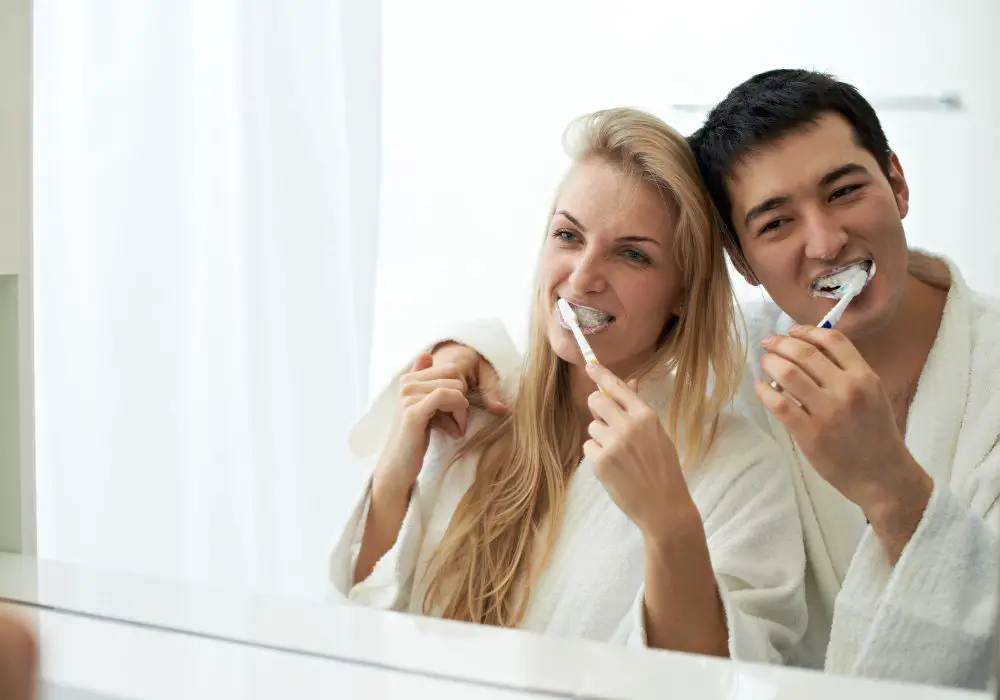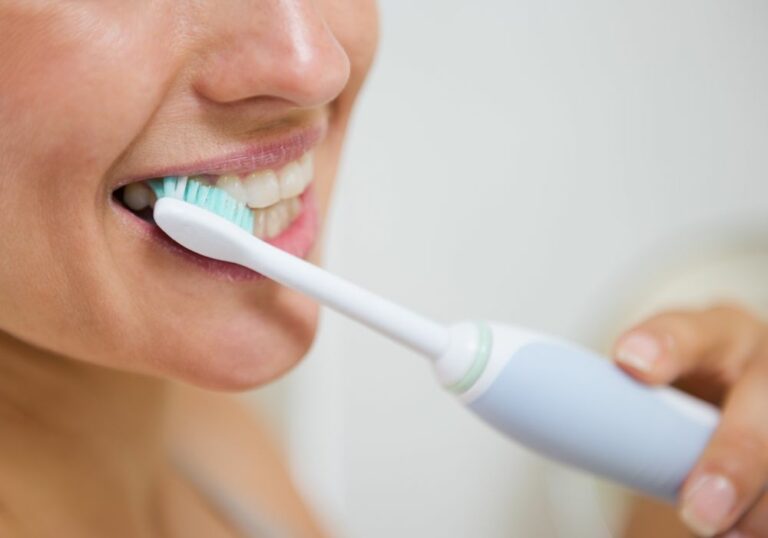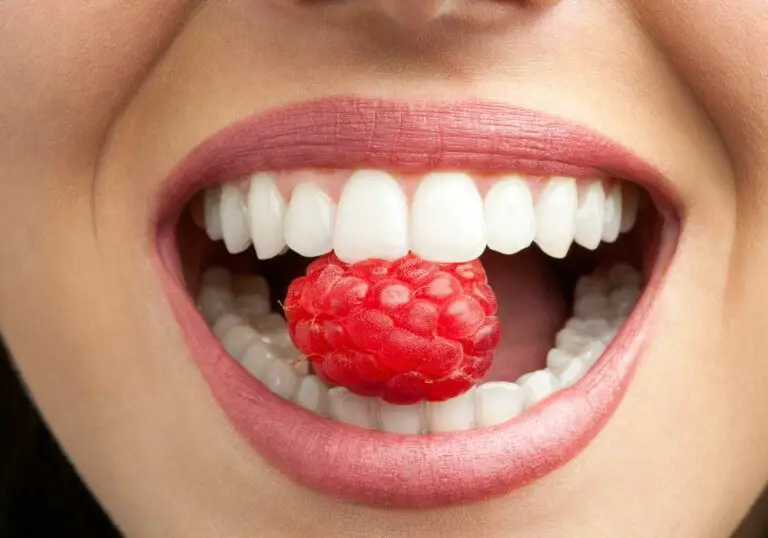Feeling nauseated or queasy when you don’t brush your teeth is an extremely common complaint that most people have experienced at some point. That uncomfortable, sick sensation you get when you wake up in the morning with plaque-coated teeth and foul-smelling dragon breath is all too familiar. But what’s actually happening inside your mouth when you skip your brushing routine that makes you feel so nauseous?
The main driver of nausea when oral hygiene is neglected is the unchecked proliferation of bacteria in the warm, moist environment of your mouth. Bacteria accumulate rapidly, growing into plaque biofilm colonies that release irritating acids and smelly waste products. These bacteria also inflame gums and give decay-causing bugs an opportunity to destroy tooth enamel.
Add in rotting food particles stuck between teeth, coated on the tongue, and festering under dentures, and you have a recipe for a nauseating mess. Read on to understand more about the microbiology, causes, and consequences of feeling queasy when you don’t brush and maintain good oral hygiene.
All About Oral Bacteria

Before delving into why poor oral hygiene makes you nauseated, it helps to understand what’s going on in your mouth bacteria-wise.
Types of Oral Bacteria
Your mouth naturally teems with over 700 varieties of bacteria, most of which are completely harmless. Certain species are even beneficial, helping maintain balance and protect teeth.
The four major phyla (groupings) of oral bacteria include:
- Firmicutes – Common species like Streptococcus and Lactobacillus aid digestion but can cause problems in high levels.
- Bacteroidetes – Helpful for breaking down carbohydrates but linked to gingivitis when overgrown.
- Actinobacteria – Found in dental plaque, some species cause cavities.
- Proteobacteria – Associated with gum disease and infections when abundant.
Biofilm Formation
Many of the bacteria in your mouth grow in cooperative communities called biofilms. They adhere to the porous surface of your teeth and gums by excreting a slimy glue-like substance. Over time, chains of different bacteria species colonize the biofilm.
These dense bacterial colonies are known as dental plaque. Plaque provides bacteria protection from antimicrobial agents like saliva and brushing.
Effects on Oral Health
Most oral bacteria are harmless commensals that peacefully coexist with your body. But when their growth becomes excessive from poor oral hygiene, they can wreak havoc on your oral and systemic health:
- Metabolize sugars into enamel-eroding acid
- Cause gingivitis and inflammation
- Produce foul waste products like hydrogen sulfide (rotten egg smell)
- Lead to periodontal disease and tooth loss
Now that you understand the resident bacteria situation, let’s explore why neglecting brushing allows them to grow out of control and make you feel ill.
Causes of Nausea When Not Brushing Teeth

There are four primary reasons why skipping oral hygiene can lead to that dreaded nauseated sensation:
1. Bacterial Overgrowth
When you don’t brush your teeth, the bacteria naturally present rapidly reproduce to colonize all available surfaces in your mouth.
With no brushing to disturb them, plaque biofilm colonies develop on teeth, the tongue, gums, and the insides of cheeks. Anaerobic bacteria flourish in the absence of oxygen deep within plaque layers.
This substantial increase in bacterial load in your mouth activates your body’s immune response. Cytokines and other inflammatory mediators are released, especially when pathogenic species multiply.
Having excessive amounts of bacteria and related cell wall components in your mouth can directly irritate nerves and the lining of your throat and esophagus, provoking feelings of nausea.
Certain bacteria like Porphyromonas gingivalis also release endotoxins that travel into the bloodstream after entering through your gums. These compounds can initiate a systemic immune response that feels like nausea.
2. Increased Acids and Toxins
Various species of oral bacteria, especially streptococci and lactobacilli, metabolize fermentable sugars into acidic waste products. The most prevalent acids include lactic, acetic, and propionic acids.
When you don’t remove food debris and plaque through brushing, these bacteria thrive and ramp up their acid production. The increased local acidity from stagnant bacteria irritates oral tissues already sensitive from inflammation.
Swallowing the acidic bacterial broth from an unbrushed mouth can directly upset your stomach and cause nausea. Specific bacterial toxins like hydrogen sulfide also have an unpleasant sulfur smell that triggers nausea centers when inhaled.
3. Food Debris Buildup
Without daily brushing, tiny food particles get trapped on and between teeth, as well as around dental work like braces, dentures, and crowns with gaps.
This debris accumulates and starts decomposing, becoming infested with dense colonies of bacteria. The bacterial digestion of stuck food pieces releases irritating acids and volatile compounds.
As food particles putrefy and rot, particularly meat and dairy, they produce foul metabolites like cadaverine, putrescine, and skatole. These chemicals give rotten food that sickening smell and trigger nausea when released in your mouth and swallowed.
4. Gum Inflammation
Infrequent brushing leads to gingivitis, an inflammatory gum condition induced by plaque bacteria buildup. Your gums become swollen, tender, and bleed easily with gingivitis.
Inflamed gum tissue has an abundance of exposed nerve endings that are extra sensitive to irritation. Even slight contact with bacteria, acid, and food debris triggers nausea signals to the brain along these nerves.
Bleeding inflamed gums also allow bacteria and their toxins easier entry into your bloodstream where they can initiate the gag reflex.
Furthermore, inflamed gums don’t hug teeth as tightly, allowing more crevices for stagnant food collection.
Consequences of Feeling Nauseated from Not Brushing

If you chronically feel nauseated from poor oral hygiene habits, certain adverse health effects can develop over time:
- Systemic inflammation – Oral bacteria enter the blood through irritated gums and travel throughout the body, potentially increasing inflammatory cytokine production. Elevated inflammatory signals make you more prone to nausea and can contribute to disorders like heart disease, diabetes, and preterm birth.
- Nutritional deficits – When you have persistent oral bacteria-induced nausea, you likely won’t feel like eating, which can lead to weight loss, energy deprivation, and vitamin/mineral deficiencies.
- Enamel erosion – The acids from stagnant plaque eat away at tooth enamel, causing increased sensitivity, yellowing, and eventually cavities and decay.
- Gum recession – Gingivitis can worsen to periodontitis, with destruction of the gums leading to loose teeth that may need extraction.
- Halitosis – Volatile sulfur compounds produced by some oral bacteria make your breath smell rotten, which can have social and professional consequences.
- Decreased mood – Studies show poor oral health is associated with a higher incidence of depression. The pain and nausea from severe oral infections reduces overall quality of life.
How to Prevent Nausea by Brushing Properly
You can avoid that miserable queasy feeling from poor oral health by taking these actions:
1. Brush teeth twice daily
Aim to brush your teeth at least twice per day for around two minutes each time. Make sure to brush first thing in the morning and right before bed so your teeth are clean overnight while you sleep.
2. Use proper brushing technique
Hold your toothbrush at a 45-degree angle aimed at your gums. Gently use short, circular rubbing motions to clean. Avoid aggressive scrubbing. Ensure you hit all surfaces – outer, inner, top chewing surfaces, and tongue side.
3. Floss once daily
Gently slide floss between teeth to remove any food debris and plaque that your toothbrush bristles can’t access. Take care not to snap floss down and injure delicate gum tissue.
4. Clean your tongue
Bacteria and rotting food debris often accumulate on the tongue. Using a tongue scraper or brush head designed for tongue cleaning, gently scrape from back to front. This removes bacteria and freshens breath.
5. Swish with water
After eating, swish water around your mouth to help rinse away leftover food bits. Drinking plenty of water also prevents a dry mouth which allows more bacterial growth.
6. Look for signs of gum disease
Check your gums in the mirror for redness, swelling, and bleeding. See a dentist promptly if your gums are inflamed so plaque and tartar can be professionally removed before extensive damage occurs.
7. Replace your toothbrush
The bristles on a toothbrush wear down over time, becoming less effective. Replace your brush every three months or when the bristles look frayed.
8. Get regular dental cleanings
Even if you brush perfectly, some plaque and calculus will still gradually build up. See your dentist for a professional cleaning every 6 months to remove hardened deposits and ensure your mouth stays fresh and clean.
9. Use mouthwash if helpful
An antimicrobial mouthwash containing ingredients like cetylpyridinium chloride, essential oils, or hydrogen peroxide can reduce your oral bacterial load after brushing, which may help certain people prone to nausea.
Professional Treatment Options

If you have severe plaque buildup, gum disease, or dental decay contributing to constant nausea, your dentist may recommend:
- Deep dental cleaning to remove heavy plaque and calculus deposits, including below the gumline
- Antiseptic rinse prescriptions to kill infection-causing bacteria
- Antibiotics to resolve advanced gum infections reducing inflammation
- Dental restorations like fillings and crowns to repair decay promoting bacterial growth
- Gum surgery and tooth extractions if teeth and gums can’t be saved
For extreme cases not resolved with dental therapy, doctors may prescribe anti-nausea medications like Zofran to provide relief of symptoms while attempting to address the root oral hygiene causes.
When to See a Doctor
You should make an appointment to see your physician and/or dentist promptly if you experience:
- Severe or persistent nausea not relieved with improved oral hygiene
- Difficulty brushing or eating due to excessive nausea and vomiting
- Bad breath or foul taste lasting longer than two weeks
- Oral pain, sores, or bleeding that won’t resolve
- Red, swollen, painful gums that bleed with brushing
- Nausea accompanied by fever, chills, fatigue, or unexplained weight loss
Make sure to let your dentist know if you have any underlying gastrointestinal conditions like acid reflux, gastritis, or ulcers that could also be contributing to nausea.
Conclusion
Feeling queasy and nauseated when you wake up with unbrushed teeth coated in smelly plaque biofilm is extremely common but also preventable. This nauseous response stems from an overgrowth of oral bacteria, their release of cell wall components and metabolic acids and byproducts, deposition and decomposition of food particles, and gum inflammation.
Allowing the unchecked proliferation of bacteria from poor oral hygiene can have consequences ranging from bad breath to systemic inflammation and tooth loss. Practicing proper brushing and flossing technique, getting regular dental cleanings, staying hydrated, and replacing your toothbrush regularly can all help maintain a fresh, clean mouth and stop nausea in its tracks. Pay attention to what your body is telling you and use that queasy feeling as motivation to be vigilant about caring for your pearly whites.
Frequently Asked Questions
Why do I feel nauseous when I don’t brush my teeth but not all the time?
You may not feel nauseated every single time you skip brushing, depending on how much bacteria and food debris have accumulated since your last brushing. The nauseous feeling tends to be worst after repeated days of not brushing which allows substantial bacterial overgrowth and plaque buildup.
Why does my nauseous feeling go away after I brush really well?
Thoroughly brushing helps to physically remove the offending bacteria, food particles, and plaque that are causing the nausea response. It decreases the overall bacterial load in your mouth, gets rid of acidic and rancid compounds, and stimulates saliva flow to normalize the oral environment. This explains why nausea dissipates after a good brushing.
Are some people more prone to nausea when not brushing?
Yes, certain individuals are more susceptible to developing nausea when they do not brush regularly. Those with a sensitive gag reflex, chronic gum disease, oral appliances like dentures or braces, and reduced salivary function are most likely to feel nauseated when their oral hygiene lapses.
Does nausea from not brushing cause bad breath?
Bad breath and nausea very commonly coexist when someone has not brushed their teeth properly. Volatile sulfur compounds emitted from anaerobic bacteria living on the tongue are a major source of halitosis. Brushing the tongue helps scrape away these smelly bacteria and reduce nausea and bad breath.
Should I see a doctor if I have nausea when I don’t brush?
You should make an appointment with your physician or dentist if the nausea is severe, persists even after resuming oral hygiene, causes vomiting, or occurs alongside other worrisome symptoms like oral pain or sores. They can help determine if there is an underlying dental infection, extensive gum disease, acid reflux, or other medical issue at play.






